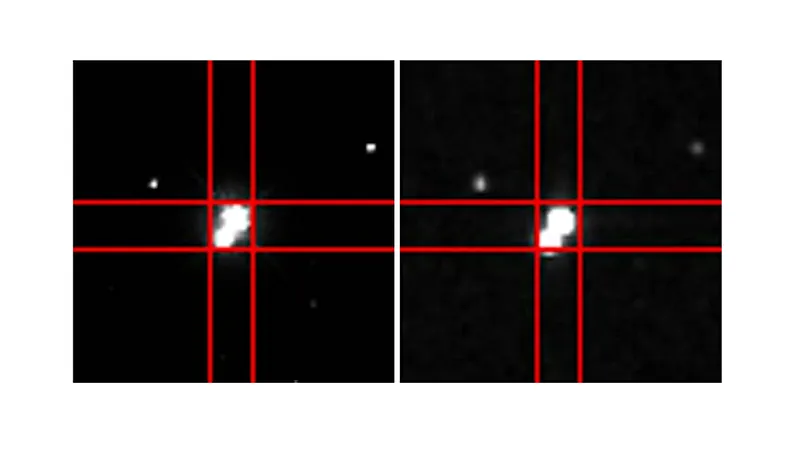
ESA's Biomass Satellite: A Game-Changer for Earth Observation and Climate Science
2025-05-15
Author: Li
A Groundbreaking Launch for Climate Monitoring
On April 29, the European Space Agency (ESA) made a monumental leap in climate science with the launch of its Biomass satellite from Kourou, French Guiana. This French overseas territory, cloaked in dense tropical forests, is poised to be at the forefront of groundbreaking environmental research.
Unlocking the Secrets of Tropical Forests
Tropical forests are crucial players in the battle against climate change, absorbing an impressive amount of carbon dioxide (CO2). However, measuring exactly how much carbon these forests hold has been a Herculean task, primarily due to their thick canopies.
Enter Biomass, a satellite armed with cutting-edge P-band radar technology, making its debut in space. This innovative instrument is designed to penetrate the forest canopy, gathering invaluable data on carbon storage, a critical factor in understanding atmospheric CO2 levels.
Behind the Scenes of the Launch
Euronews Tech Talks captured the electric atmosphere leading up to the launch. Representatives, space enthusiasts, and journalists gathered to witness this historic event, all brimming with anticipation. Simonetta Cheli, ESA's Earth Observation Programs Director, emphasized the satellite's dual importance: its scientific relevance and the broader implications for public health and air quality.
A Collaborative European Effort
The ESA mission was a true collaborative triumph, involving numerous European entities. The satellite was built by Airbus Defence and Space, launched by the Vega C rocket, and developed with components from 13 ESA member states. Giulio Ranzo, CEO of Avio, celebrated the decade-long effort that led to this game-changing technology.
Other key contributors included Arianespace, overseeing the launch logistics, and CNES, the French space agency, which played a pivotal role in research and data collection.
The Eve of Launch: A Tense Anticipation
On the eve of the launch, excitement filled the air at the Kourou spaceport. Jean-Frédéric Alasa of CNES expressed a mix of excitement and concern about the complexities of a rocket launch. Meanwhile, Biomass project manager Michael Fehringer expressed unshakeable optimism, believing in the satellite's potential to deliver essential insights.
What Lies Ahead?
For those eager to learn more about the launch and its implications, tune into Euronews Tech Talks for an in-depth episode. This isn't just another satellite launch—it's a revolutionary step towards understanding our planet and addressing climate change.

 Brasil (PT)
Brasil (PT)
 Canada (EN)
Canada (EN)
 Chile (ES)
Chile (ES)
 Česko (CS)
Česko (CS)
 대한민국 (KO)
대한민국 (KO)
 España (ES)
España (ES)
 France (FR)
France (FR)
 Hong Kong (EN)
Hong Kong (EN)
 Italia (IT)
Italia (IT)
 日本 (JA)
日本 (JA)
 Magyarország (HU)
Magyarország (HU)
 Norge (NO)
Norge (NO)
 Polska (PL)
Polska (PL)
 Schweiz (DE)
Schweiz (DE)
 Singapore (EN)
Singapore (EN)
 Sverige (SV)
Sverige (SV)
 Suomi (FI)
Suomi (FI)
 Türkiye (TR)
Türkiye (TR)
 الإمارات العربية المتحدة (AR)
الإمارات العربية المتحدة (AR)